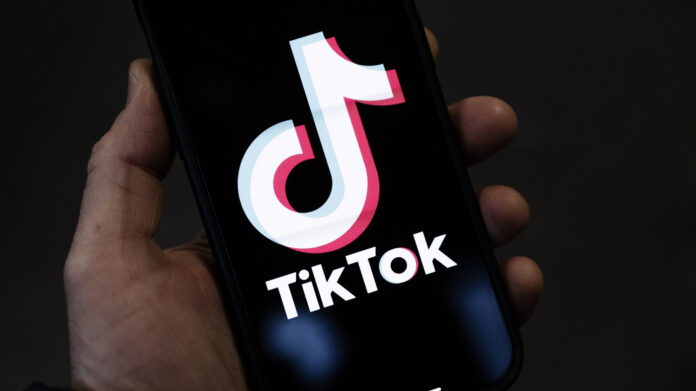You can take the platform away from American users, but it is far too late to contain the habits that it has unleashed
On April 24th, after years of talks about a TikTok ban, President Joe Biden committed to remaking the platform’s existence in the United States. A foreign-aid package that he signed into law, and that passed in the House and the Senate with strong majorities, included funding for Ukraine, Israel, and Gaza, plus a bill that will force the digital platform to either sell itself to an American entity or be banned on a national level. ByteDance, TikTok’s Chinese parent company, now has about nine months to divest. In his remarks after signing the package, Biden didn’t directly refer to the social-media platform, though he did say that the foreign aid would “make America safer,” a notion that also helps explain the government’s reasoning on the TikTok ban.
Over the past several years, TikTok has become something of a symbol both of fears over China’s rise as a dominant international power and of concerns that social media as a whole is harming children. The existential threat posed by the new legislation is nothing new. In 2020, the company put forward an elaborate plan to give twenty per cent of its platform to Walmart and Oracle, which would have hypothetically insured the data’s security and the company’s independence from the Chinese government. That plan was eventually shelved, in 2021, owing to security concerns.
Since then, however, the platform has only grown more popular among U.S. users, whom the company has tried to convert to activists on its behalf. Earlier this year, users in the U.S. who opened the app found a pop-up requesting that they “tell Congress what TikTok means to you,” along with a button to directly phone elected officials. The subsequent wave of angry and uninformed calls, recounted to Politico by lawmakers’ offices, may have actually encouraged legislators to act on the proposed ban. According to Politico, the chair of the House Committee on Energy and Commerce, Cathy McMorris Rodgers, concluded that the calls “only exposed the degree in which TikTok can manipulate and target a message.” In other words, by trying to rally its supporters, the company had only proved that it was a propagandistic threat.
TikTok’s C.E.O., Shou Zi Chew, became something of a Gen Z-approved celebrity after he appeared in front of Congress in 2023. On the day Biden signed the new package, Chew made the company’s position clear in a polished TikTok video posted on its official account. The law was “a ban on you and your voice,” Chew said. He continued, “TikTok gives everyday Americans a powerful way to be seen and heard.” Chew’s statement hinted at what seems to be ByteDance’s legal strategy moving forward: an argument that getting rid of TikTok could amount to a violation of free speech.
On Tuesday, the company sued the U.S. government, writing in its filing that preventing American citizens from accessing the app is “unconstitutional.” There are legal precedents for such a claim, among them a 2017 Supreme Court case, Packingham v. North Carolina, which struck down a state law banning a sex offender from Facebook. “A fundamental principle of the First Amendment is that all persons have access to places where they can speak and listen,” the former Supreme Court Justice Anthony Kennedy wrote. “One of the most important places to exchange views is cyberspace, particularly social media.”
But other hints from ByteDance about how it might respond to the new law don’t quite cast its position in impassioned First Amendment terms. According to Reuters, ByteDance would rather shut down its U.S. TikTok operation than sell it. The vaunted recommendation algorithm that controls TikTok’s “For You” feed is what makes the app unique and successful; ByteDance leverages the same technology across its many other businesses, including Douyin, the Chinese version of TikTok. As in any other international trade dispute, putting valuable technology in the hands of a competitor through a sale would be destabilizing.
Meanwhile, TikTok’s U.S. audience reportedly only generated about thirteen per cent of ByteDance’s 2023 revenue. In that sense, forgoing the American market would be strategically preferable for ByteDance, and relatively trivial. TikTok is already banned outright in several countries, including India, and has survived just fine. (China itself blocks access to TikTok, not to mention Facebook and Instagram, in its own strategy of techno-nationalism.) / The New Yorker / Kyle Chayka /














